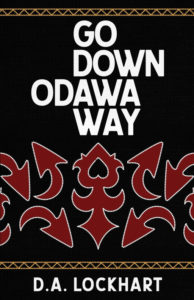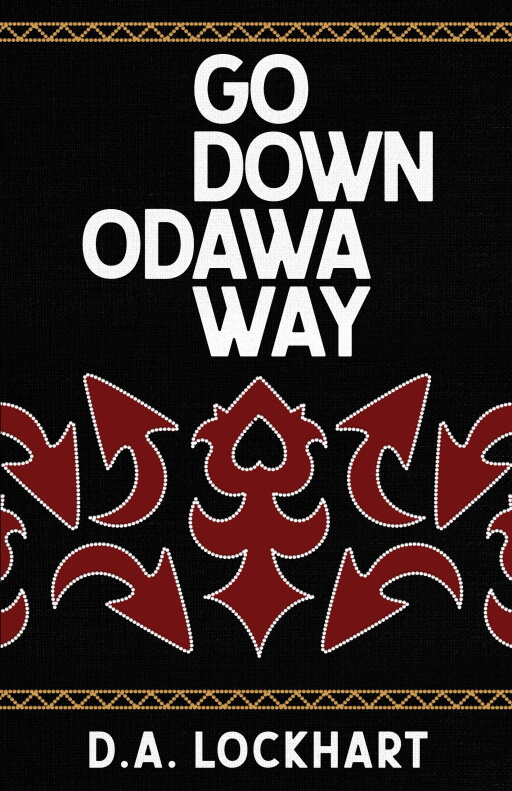By Marty Gervais
Go Down Odawa Way
by D. A. Lockhart
Kegedonce Press (2021)
I heard so much about this book by Windsor-based writer D.A. Lockhart, and looked forward to reading it. The reason is that in part it’s about my neighbourhood, my roots. The environs of the Detroit River. The traditional territories of the Three Fires Confederacy. My ancestors, hailing from Normandy, crossed the stormy Atlantic, and first made their way from the St. Lawrence to Montreal, and from there to what is now southwestern Ontario in 1708. They were the first French family to settle on the south shore of the Detroit River in a place called Waawiiyaatanong.
I’ve lived here most of my life, and as I say, in picking up Go Down Odawa Way, it was in some ways like holding up a mirror thinking you are going to find your own face. Big surprise, it’s the face of another, maybe a stranger. More importantly, maybe someone you ought to know. A culture at the very roots of this place. Thankfully, Lockhart is there to tell you that story, to take you on a journey that dips into history, culture, storytelling, myth, the mysteries of language and landscape. Here, the poet sounds an ominous statement of the past: “Each holocaust has its survivors, songs/individuals that remain and call out/to what was taken before…” At the same time, the poet, however, invites us to quiet down, listen, hear the story, and in one poem after another, sings to us what is truest, what is not so evident to everyone. He speaks of the Great Western Park, and the tangled railway lines that not so long ago crisscrossed itself across the vast waterfront, and how that corporate undertaking swept away all that came before. He tells it straight — this was nothing more than a “gouging” of the earth, greedily scraping away all its identity.
Lockhart, the virtuoso poet, provides us an impressive and brilliant work that is original, vivid, and is executed with haunting and lyrical force as he moves from one subject to another. In these poems, he offers a startling narrative most often depicted in the frustrating wrangle and tension between the natural landscape and the industrial and urban sprawl. In that mix, we encounter characters and stories that inform and dazzle a reader, some present day, others borrowed from the 18th century.
A favourite section is a series of sonnets for neighbouring smaller rivers, like Turkey Creek that “warbles … trills/In song for what is absent.” Or Little River, a favourite hike for me, and Lockhart captures it well: “…still water between/corrugated metal break walls…”
In a poem centred on Hogg Island (in the Detroit River), nearby where Pontiac camped, Lockhart moves in to remind us again that no matter how much the land has been sacrificed to industry, “this earth/knows itself reflected in the glow/of Council fires … “ In other words, pay attention to the land. And pay attention to what is still there beneath all that has been disfigured and forgotten over time.


